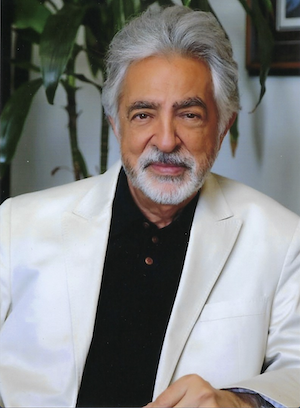Deeply attached to his Italian roots, Joe Mantegna has portrayed the best and worst of our community with equal commitment in the course of a stellar decades-long career in show business.
Joe Mantegna has been a pillar of Hollywood and the Italian-American community for decades. His professional accolades are a testament to his more than 200 film and television appearances. Mantegna won a Tony and a Joseph Jefferson Award in 1984 for his role as Richard Roma in the Pulitzer Prize- winning play “Glengarry Glen Ross.” He’s also received a star on the Hollywood Walk of Fame in Los Angeles in addition to a star on the Italian Walk of Fame in Toronto. And throughout his career, he has remained true to his Italian-American roots.
Born and raised in Chicago, Mantegna is a second-generation Italian American. His father’s roots are in Calascibetta, Sicily, while his mother’s are in Acquaviva delle Fonti, a town just outside of Bari. “I’m Sicilian and Barese. In some Italian families that might be considered a mixed marriage!” Mantegna says in jest.
Mantegna made his first trip to Italy in 1975 while on tour with the Chicago-based Organic Theater Company. His maternal grandfather, Joseph Novielli, asked him to visit his ancestral town of Acquaviva delle Fonti. “I’m still very close to my family in Acquaviva delle Fonti,” Mantegna says. “In fact, I’m closer to some of my relatives there than some in the United States.”
During the great wave of Italian immigrants in the early 1900s, Mantegna’s paternal grandfather, Salvatore Mantegna, came to America with his close friend Giuseppe Randazzo. They settled in Krebs, Oklahoma, which was still Native American territory at the time. The two men each purchased 50 acres adjacent to each other and started their families. “There was an influx of Italian immigrants moving out West to work in the coal mines,” he says. Due to its large Italian presence, Krebs became known as “Oklahoma’s Little Italy.”
“It was very appealing for Italians to move out West,” he says. “If you move to America, you can get 50 acres!”
The property in Krebs remained in Mantegna’s family for more than a century. It was only months ago that they sold the land to the descendants of his grandfather’s best friend, who still live on Giuseppe’s original plot. “Italian Americans can do a better job of supporting each other,” he says. “My grandfather would have wanted us to sell the farm to his friend’s descendants.”
 Mantegna doesn’t put a lot of stock in purity of bloodlines given the nature of modern America, believing that Italian culture should be embraced by all. “Even if you have just a little bit of Italian ancestry, you are a son or daughter of Italy,” says Mantegna. “Welcoming others will ensure the survival of Italian culture.”
Mantegna doesn’t put a lot of stock in purity of bloodlines given the nature of modern America, believing that Italian culture should be embraced by all. “Even if you have just a little bit of Italian ancestry, you are a son or daughter of Italy,” says Mantegna. “Welcoming others will ensure the survival of Italian culture.”
Mantegna’s Italian ancestry strongly influenced his life and career. Many of the characters he’s portrayed have been Italian or have been influenced by his Italian background. “When acting, it’s important to find parts of yourself in the character,” he says.
Mantegna’s original inspiration for acting came from Broadway musicals. “There was nothing pointing me toward acting. I never dreamed of being an actor,” he says. “It all started after I saw the film ‘West Side Story.’”
In junior year of high school, Mantegna was dared to try out for his high school’s rendition of the iconic musical. It was only after he received applause for his audition that he knew he wanted to pursue a career in acting. “I actually was never cast in that play,” says Mantegna. “It was that feeling I had on stage that I was addicted to.”
Mantegna compared a career in acting to a career in baseball. “You have to start at the lowest possible levels and work your way up,” he says. “You start in Little League, then you work your way up to the Pony League. From the Pony League you play in high school, and you keep moving up the ladder. With some hard work and dedication, and maybe even a little luck, you might get into the big leagues.”
He realized this especially when he began filming “The Godfather Part III,” working alongside Italian-American legends like Al Pacino and Francis Ford Coppola. “‘The Godfather’ and ‘The Godfather Part II’ are two of the greatest films ever made. It hit me when I realized Francis Ford Coppola was about to yell ‘Action!’ and start filming the new ‘Godfather’ movie with me, Joe Mantegna, in a scene where I have to yell at Al Pacino.”
In that moment, Mantegna panicked, but relaxed when he realized he had been acting since high school and had worked hard for many years honing his craft. “My whole life flashed before my eyes, and I knew I earned my place to be there. I realized that Francis Coppola thinks I’m the guy to play this role,” he says. “I’ve been working toward this since I auditioned for ‘West Side Story’ in high school.”
Mantegna doesn’t shy away from the fact that some of his roles may have perpetuated negative stereotypes. His most prominent roles include playing Joey Zasa in “The Godfather Part III” and the voice of Fat Tony in “The Simpsons.” “I’m not going to apologize for the roles I’ve played,” Mantegna says. “I’m an actor and I’m telling a story.”
 It wasn’t a coincidence that many of the characters he portrays — notably Will Girardi from “Joan of Arcadia” and David Rossi from “Criminal Minds” — were Italian American.
It wasn’t a coincidence that many of the characters he portrays — notably Will Girardi from “Joan of Arcadia” and David Rossi from “Criminal Minds” — were Italian American.
When working on the legal drama “First Monday,” Mantegna asked the producer if he could make his character Italian American. “Supreme Court Justice Joseph Novelli was originally supposed to be Jewish,” he says. “I asked the producer to make him Italian American. I didn’t always want the Italian Americans I portray to be negative.”
Mantegna believes that it’s wrong for Italian Americans to deny the mafia as a part of their history. “The mafia does and did exist,” says Mantegna. “For me, to refuse to play a role like that makes me look like I’m embarrassed by it. There is good and bad in every culture.”
He notes that for every negative role he accepted, he tried to make up for it by playing a positive role. “For every Fat Tony, I play a David Rossi,” Mantegna says. “It’s important to keep that balance. If I wasn’t allowed to play specific roles as an Italian American, I would consider that censorship.”
Mantegna has long worked with Italian-American organizations like the National Italian American Foundation and the Order Sons and Daughters of Italy in America, and hosting the Sons of Italy Foundation’s NELA gala for more than 20 years.
At 76 years old, Mantegna is open to whatever roles may come his way. “I’ve never had a career where I was a planner,” he says. “I’ve always been comfortable that things will work out.”
Before working on “Criminal Minds,” Mantegna had never seen an episode before. “I don’t watch a lot of television and one day I got a call for ‘Criminal Minds.’ Now almost 20 years later and still doing the show, I’d say this has worked out very well.”
The above appears in the June 2024 issue of the print version of Fra Noi. Our gorgeous, monthly magazine contains a veritable feast of news and views, profiles and features, entertainment and culture. To subscribe, click here.
 Fra Noi Embrace Your Inner Italian
Fra Noi Embrace Your Inner Italian






